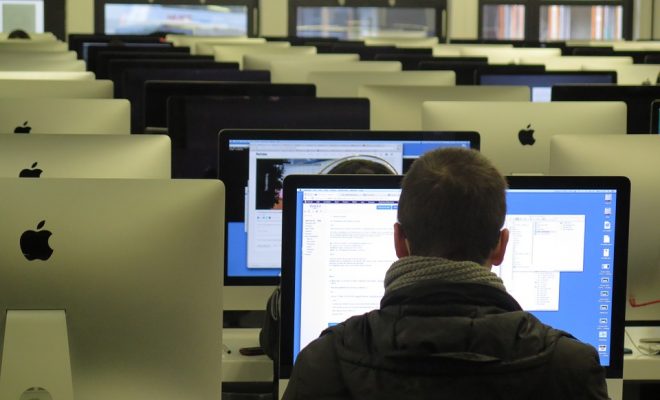18 Cause-and-Effect Lesson Plans

Why did the bird fly away? Because the owner left the bird gate door open. That is just one example of cause-and-effect. This is incredibly simple to understand and something that every school age child needs to learn. Teaching your students about cause-and-effect can be tricky because children don’t always grasp this concept easily. So, it is necessary to create cause-and-effect lesson plans to make it easier for your students to learn.
So, how to create an effective lesson plan for your students?
Create an Anchor Chart for Cause-and-effect
Anchor charts can be used to reinforce what you’re teaching your students. For instance, why did the dog chase the neighbor’s cat? Because dad left the door open. If you were giving this example to your students, you could refer to the anchor chart for them to understand. It’s a great way to encourage children to learn and understand a lot better. You can emphasize what the cause is and why it happens. Making an anchor chart gives the child a reference to consider.
Create an Experiment
Cause-and-effect can be a difficult topic to teach, especially with younger children, so a simple experiment can be very useful. This is the best way to show cause-and-effect in simplistic terms. For instance, the plant grows because you watered it. The cause in this example is the plant, the effects are water. This is a simple experiment but useful for students to understand cause and effect.
The Domino Effect
You can easily show your students how cause-and-effect work through the domino effect. For example, you set up a row of dominoes on a table. You then push one over which then causes the rest to follow. This is a prime example of cause-and-effect. You’re giving the student a perfect example of how cause-and-effect work.
The Light Switch Challenge
Walk into the classroom and turn off the light. You have given the students a simple practice of cause-and-effect. Ask them, ‘why did the light turn off?’ The class should respond, ‘because you switched it off.’ You have just given the class a great example of cause-and-effect. It is something they can understand through simple actions.
Match-Up Sentences
Write down 10 causes and effect scenarios and get the students to match them. It can be done as a class discussion or individual task. This is incredibly useful for kids to learn about cause-and-effect.
Create Paper Chains
This is similar to a match-up sentence but with paper chains instead. So, you get your students to write down causes and effect scenarios. For every right pairing, connect them onto a paper chain. This can then be used to encourage others to learn.
Give Real-Life Examples
There are lots of cause-and-effect examples to use, but there is no better one than real-life. For example, you set a cup of water outside overnight during winter and it turns into ice. That is a real-life example children can understand and even practice. You have to give them different cause-and-effect examples they can then use. It’s a simple teaching method for children to learn.
Cause-and-Effect Pairs
Card games are effective at improving cognitive skills and critical thinking and can be ideal for teaching cause-and-effect scenarios. So, create a series of cards with cause-and-effect scenarios on them. Get your students to match each pair. You can mix things up with words and pictures to offer a new challenge to the children.
Try Mad Libs
When your students become familiar with the concept of cause-and-effect, it’s time to test their skills with mad libs. Create a worksheet and let them fill in the blanks with the right cause or effect. This is a useful way to challenge the skills of the child and help them determine the differences between the causes and effects.
Play Games
Children often respond better when they are motivated and find an activity to be fun. Playing educational games can retain the child’s attention and help them learn. You can have class games or set the children in pairs, but they can learn about cause-and-effect.
Get Them to Practice Cause-and-Effect Scenarios
Sometimes, children don’t fully understand what you’re trying to tell them. Worst of all, they don’t always ask for help or admit they don’t understand what they’re being told. So, get every child to practice simple cause-and-effect scenarios. Give them basic scenarios for them to practice and this will allow them to understand how their actions make a difference. For instance, lighting a room is only possible when someone switches on the light. These are basic things that are easy to teach.
Challenge The Student to Find Clues
If you create a word sequence game, you can ask the children to find words that relate to cause-and-effect. For instance, since, due to, because… If children can pick out these clues while reading, they can understand cause-and-effect better.
Use Pictures to Infer Cause-and-Effect
Once your students have a basic understanding of cause-and-effect, you can challenge their knowledge with picture challenges. For instance, you show the class a picture (the cause) and have them write down possible outcomes (the effect). You can do this with the entire class as one or split them into groups. It’s a great way to make it easier for children to understand and expand their ideas of cause-and-effect.
Have a Group Discussion
This is a useful way to teach a child about cause and effect. Allow the students to ask questions and say what they think cause-and-effect is. You can then pose the class questions and get everyone involved. It’s a simple way to expand on cause-and-effect scenarios.
Create Flipbooks to Teach Cause-and-Effect
Flipbooks are easy but very handy when it comes to teaching children. You can create a simple flipbook and pass it around to each child or have them make one. The flipbook can have different examples of cause-and-effect and how each action reacts.
Read a Picture Book
For younger children, picture books are ideal because they give simple ways to teach children. You can opt for a short storytime to encourage the students to understand cause and effect. It can be very effective and shows different examples too.
Get the Students to Make Cause-and-Effect Cards
Let the student create different words with cause-and-effect examples. You can let them be as creative as they like and see how far they’ve progressed. It’s also the perfect opportunity to expand their knowledge of cause-and-effect and help those still struggling to understand the concept.
Act Out Cause-and-Effect Scenes
Visual learning is a fantastic way to educate a child because some respond better to this method. It can be a useful way to include every student, even the shy ones, to split into groups and act out cause-and-effect scenes. This is useful for younger children or those who are finding it difficult to come up with new examples of cause-and-effect.
Keep Your Lesson Plans Varied
It’s easy to lose the attention of the children when you go over the same ground without changing things up. For instance, using match-up sentences to teach your class about cause-and-effect can be great, but after four lessons, it gets old. On the other hand, following up those lessons with real-life demonstrations or examples could help retain the children’s attention. This can make it easier for them to understand the point you’re trying to get across.






